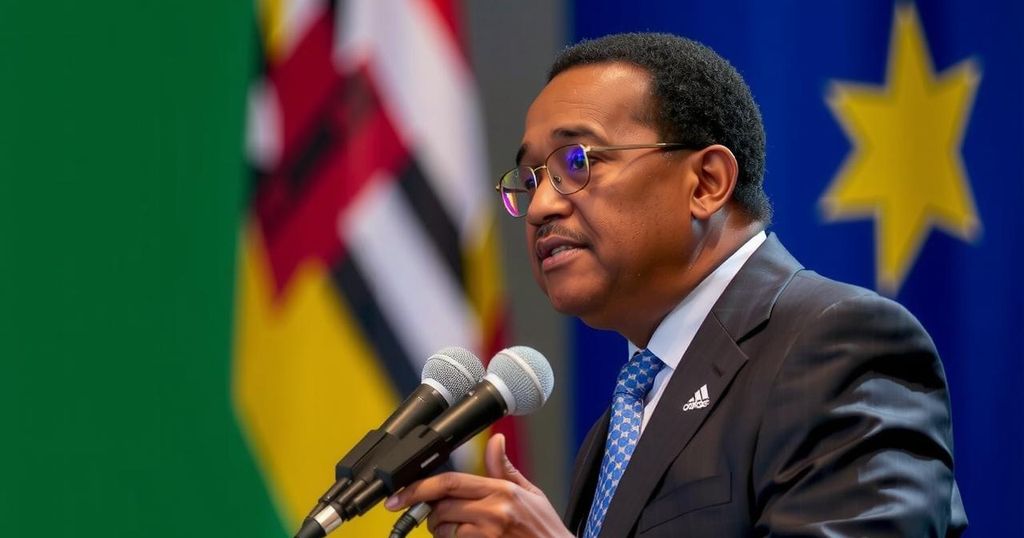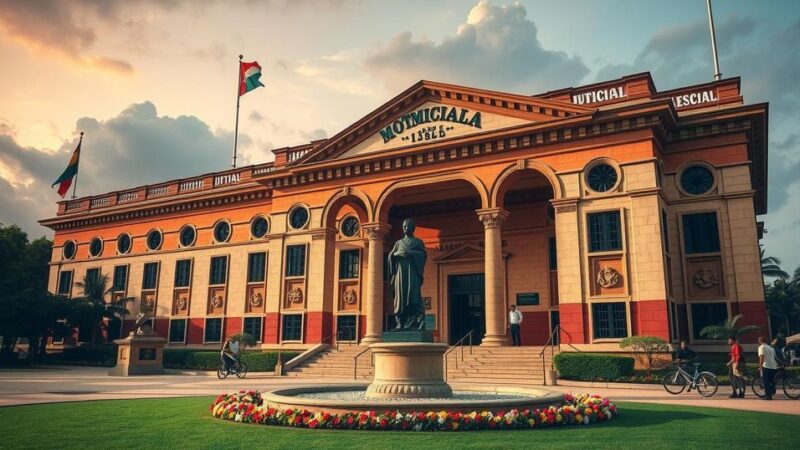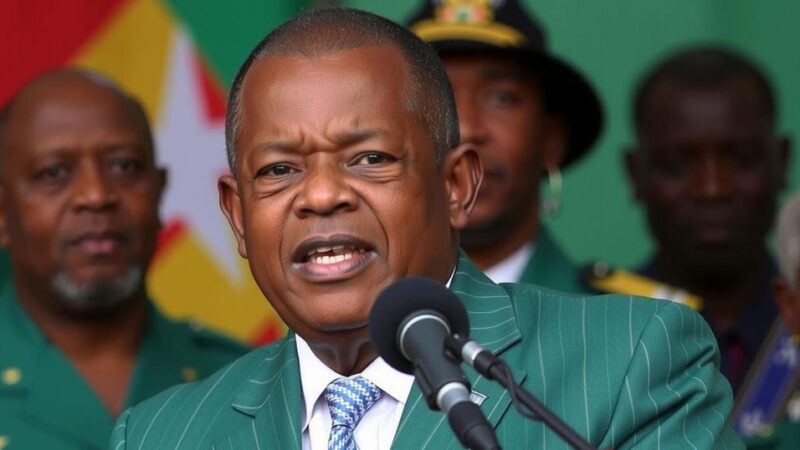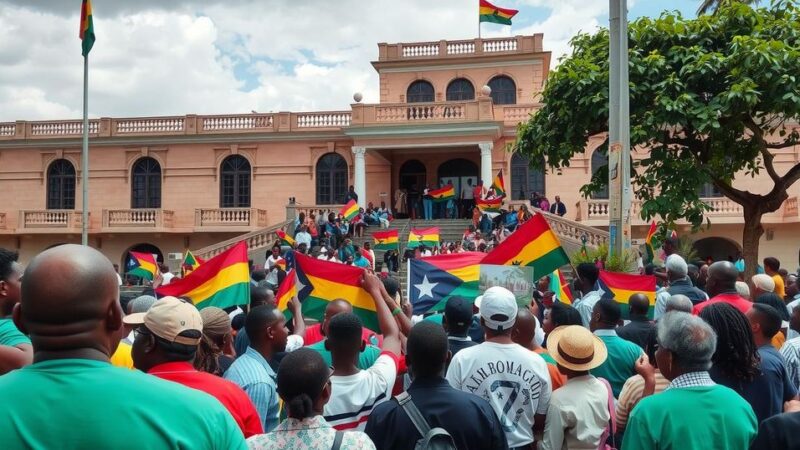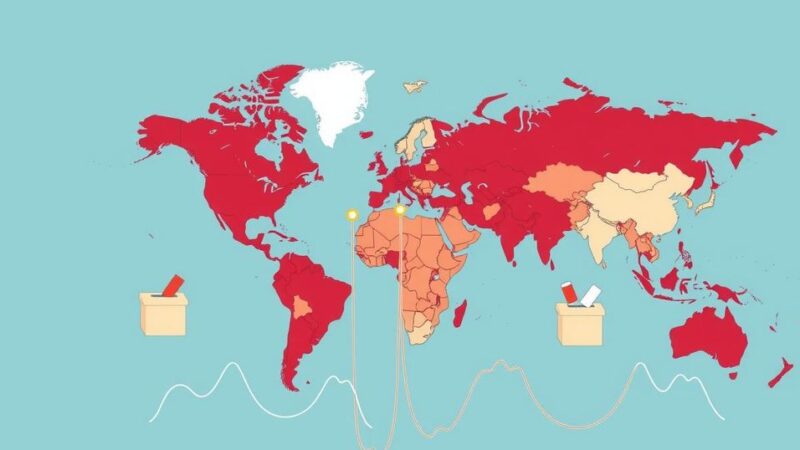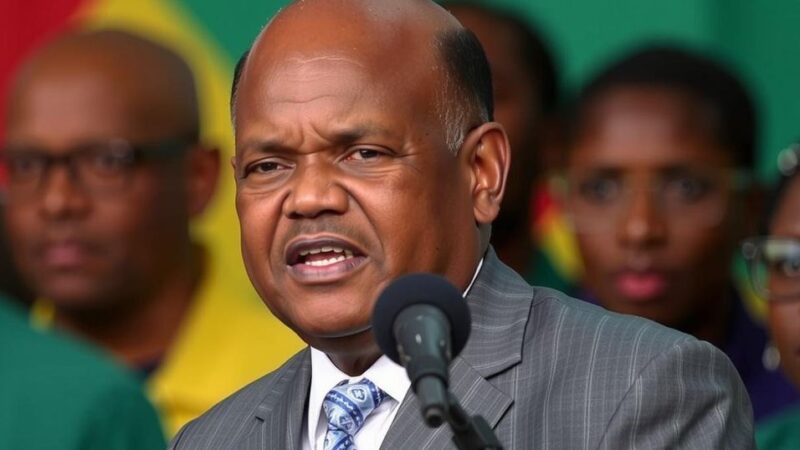Mauritius’ Prime Minister Pravind Jugnauth anticipates a “huge defeat” for his ruling coalition in the ongoing parliamentary elections, acknowledging voter rejection amidst corruption allegations. The opposition, led by former Prime Minister Navin Ramgoolam, is expected to secure victory as final results are awaited.
Prime Minister Pravind Jugnauth of Mauritius has stated that his ruling coalition is likely to suffer a significant defeat in the recent parliamentary elections held on Sunday. Despite the ongoing counting of votes, Jugnauth acknowledged the prevailing sentiment among the electorate, indicating a rejection of his Militant Socialist Movement. He has been in office since 2017 and sought another five-year term amidst allegations of corruption, especially following the release of incriminating recordings involving politicians and business figures online. The opposition Alliance for Change coalition, led by former Prime Minister Navin Ramgoolam, appears to be in a favorable position to claim victory, although they have not yet made a statement regarding the election outcome. In light of the election results, Jugnauth remarked, “The population has decided to choose another team. I wish good luck to the country.” The final results of the election are anticipated later today. The election was significant, with over one million voters registered to elect representatives for 62 parliamentary seats. This election marks the twelfth since Mauritius gained independence from Britain in 1968. In the context of Mauritian politics, the party or coalition that secures a majority in Parliament assumes the responsibility of forming the government and appointing the Prime Minister. Mauritius, located approximately 2,000 kilometers from the eastern coast of Africa, has fostered a diverse economy primarily strengthened by its finance, tourism, and agricultural sectors. The nation was designated as a high-income country in 2020; however, the COVID-19 pandemic has since adversely affected its tourism industry, posing challenges to its economic stability.
Mauritius has experienced a dynamic political landscape since its independence in 1968. The current elections are pivotal as they comprise the twelfth parliamentary election and reflect ongoing issues such as economic performance, accountability, and governance. Jugnauth’s government has faced serious scrutiny due to corruption allegations, which have resonated among the electorate as they exercise their democratic rights. The political atmosphere is charged, emphasizing the electorate’s desire for change. The Alliance for Change, under Ramgoolam’s leadership, is positioned to capitalize on this sentiment.
In summary, Prime Minister Pravind Jugnauth has conceded the likelihood of his ruling coalition facing a considerable defeat in the recent elections, as preliminary indications show a favorable outcome for the opposition. This electoral shift underscores public discontent with the current administration amid serious corruption allegations. With a significant number of voters mobilized, the future political direction of Mauritius will hinge on the final vote count and the leading coalition’s ability to govern effectively.
Original Source: apnews.com

